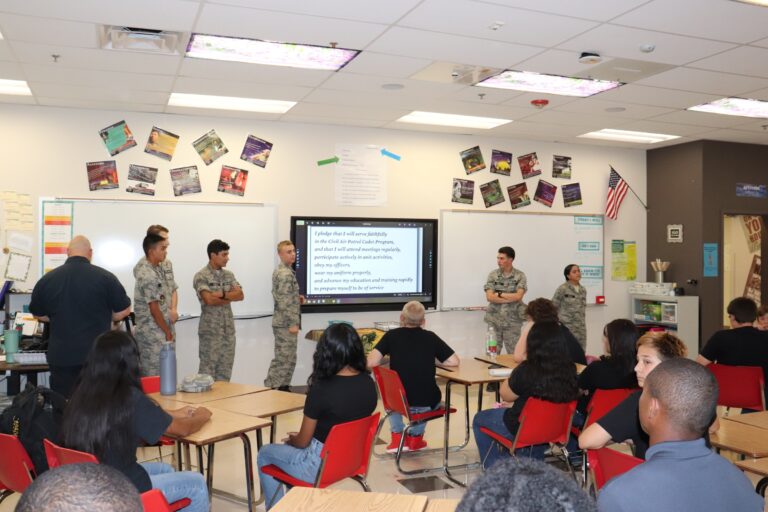The Civil Air Patrol (CAP) serves as the official auxiliary of the United States Air Force, but its true impact extends far beyond its military affiliation. Captain Shawn Carter, who leads the efforts of CAP in Pahrump, describes it as one of the top youth programs in the nation. With a focus on leadership, education, and emergency services, CAP provides young people between the ages of 12 and 21 with opportunities to grow into responsible, skilled, and community-oriented individuals.
At its core, CAP has three main missions: cadet programs, aerospace education, and emergency services. The cadet program, which Captain Carter is currently overseeing through the Great Start program in Pahrump, helps young participants develop discipline, leadership, and respect. “The cadet program is designed to help them become better individuals and positive influences,” Carter explained. In addition, CAP integrates essential training on customs, courtesies, and even military discipline, laying a foundation for success both in and out of uniform.
A key feature of CAP’s offering is aerospace education. On Saturday, September 14, the Pahrump squadron held a field day that gave cadets the chance to learn about aerodynamics and experience flying a Cessna. The cadets were able to learn from a trained pilot while in the air, as well as take control of the aircraft under close supervision. Captain Carter emphasized the value of these hands-on learning experiences: “They got to feel what it’s like to actually fly a real aircraft, which gives them confidence and a better understanding of how airplanes work.”
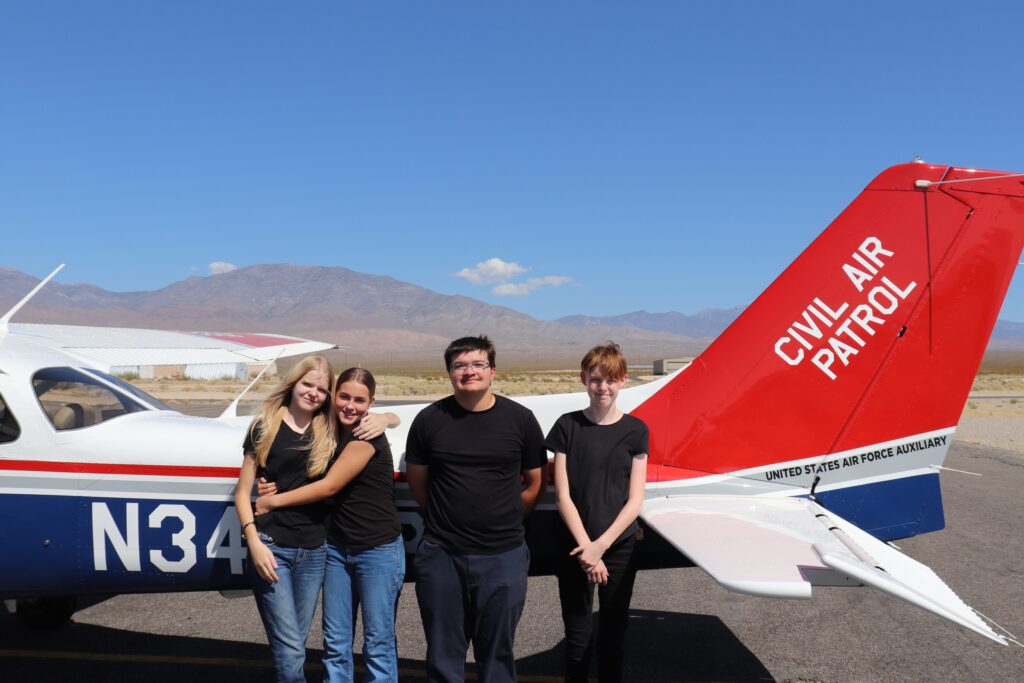
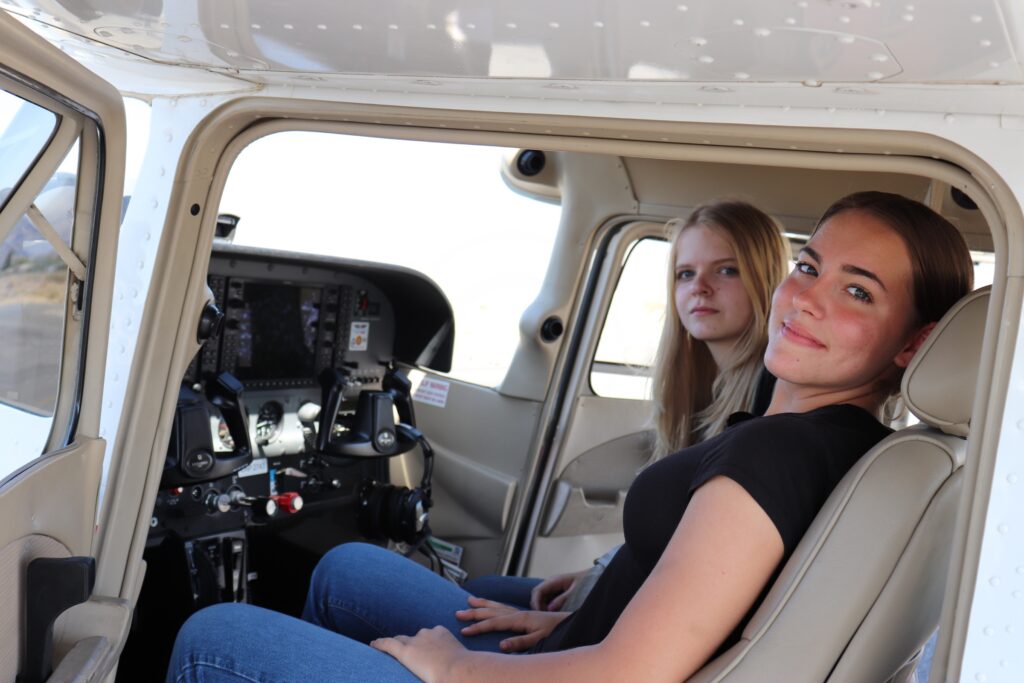
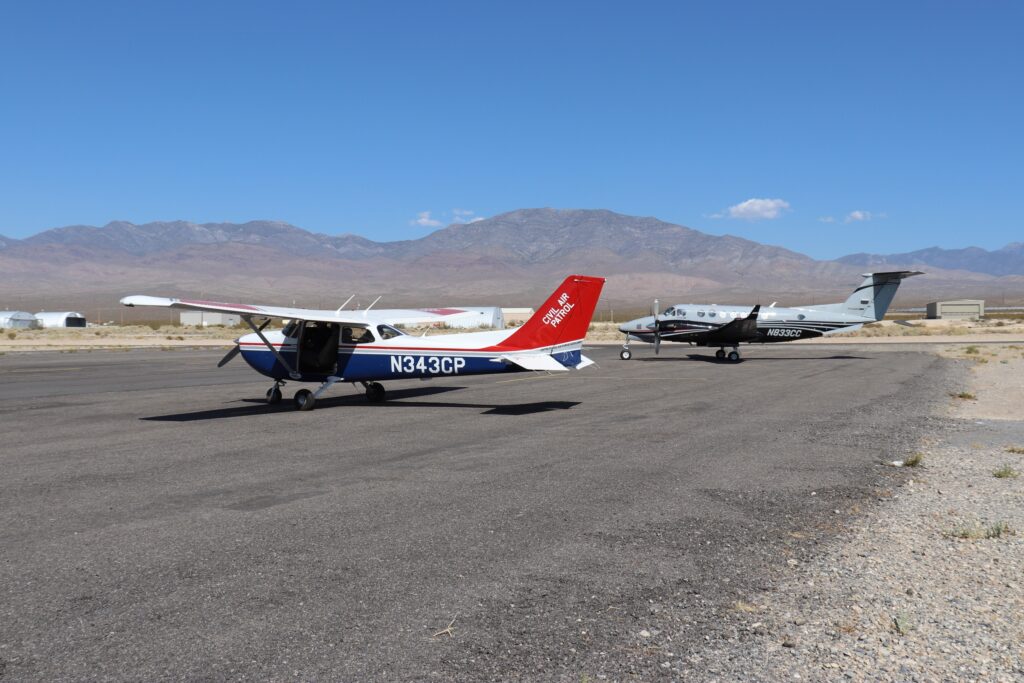
Emergency services, the third and equally important mission of CAP, allow cadets to participate in real-world rescue operations. From drone operations and mission staff assistance to ground searches for missing persons or planes, the cadets are trained in vital, life-saving skills. Cadets can join ground teams for active search and rescue missions and once a cadet turns 18, they can train as transport mission pilots to deliver supplies in disaster areas. As Captain Carter explained, the possibilities are vast: “If they are 18 and have a private pilot’s license, they can transport blood or supplies in times of need.” However, it is clear that CAP’s emergency services operate with a profound sense of responsibility, as cadets learn to support law enforcement and search and rescue teams effectively and safely.
Although CAP is structured similarly to a military organization, there is no requirement for cadets to enlist in the Air Force or any branch of the military. Captain Carter made it clear that, while the program shares customs, uniforms, and certain traditions with the Air Force, cadets are not obligated to continue on to military service. However, the training and leadership skills gained through CAP are recognized by all branches of the military, with cadets receiving benefits if they choose to enlist. For example, those who reach the rank of Second Lieutenant in CAP can enter the military at a higher rank than their peers, granting them a step up in their careers.
For students interested in joining CAP, the process is straightforward. The program is open to youth starting at age 12, with the opportunity to continue through age 21. There is no requirement to continue education beyond high school to participate, and the program allows for flexible recruitment, meaning cadets can join at any time of the year. Captain Carter pointed out that while the Pahrump CAP program is still in its early stages, having started less than a year ago, there are already plans for growth and expansion. “Right now, we are fully funding everything,” Carter explained, referring to the fact that the Henderson Composite Squadron is covering all costs, including uniforms and ranks. “But the goal is to eventually establish an independent squadron here in Pahrump that can operate on its own.”
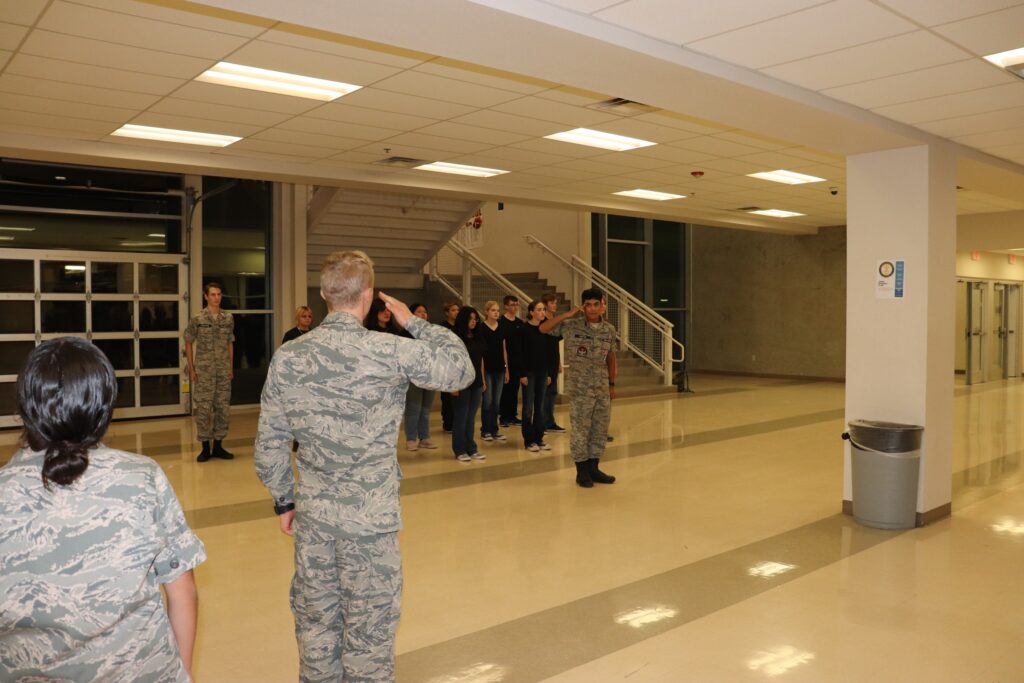
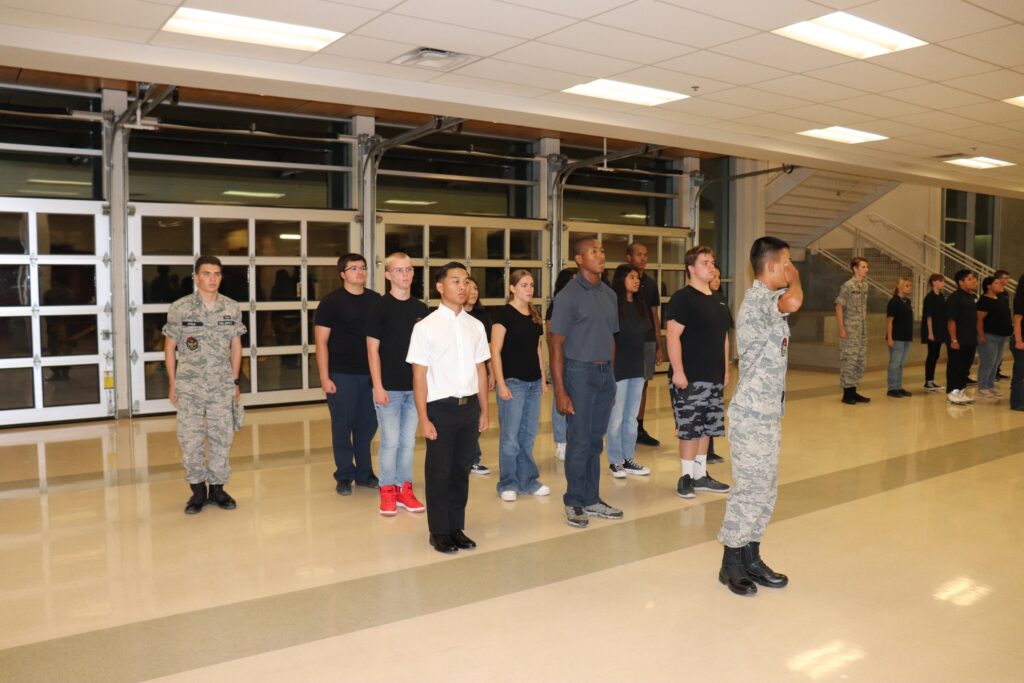
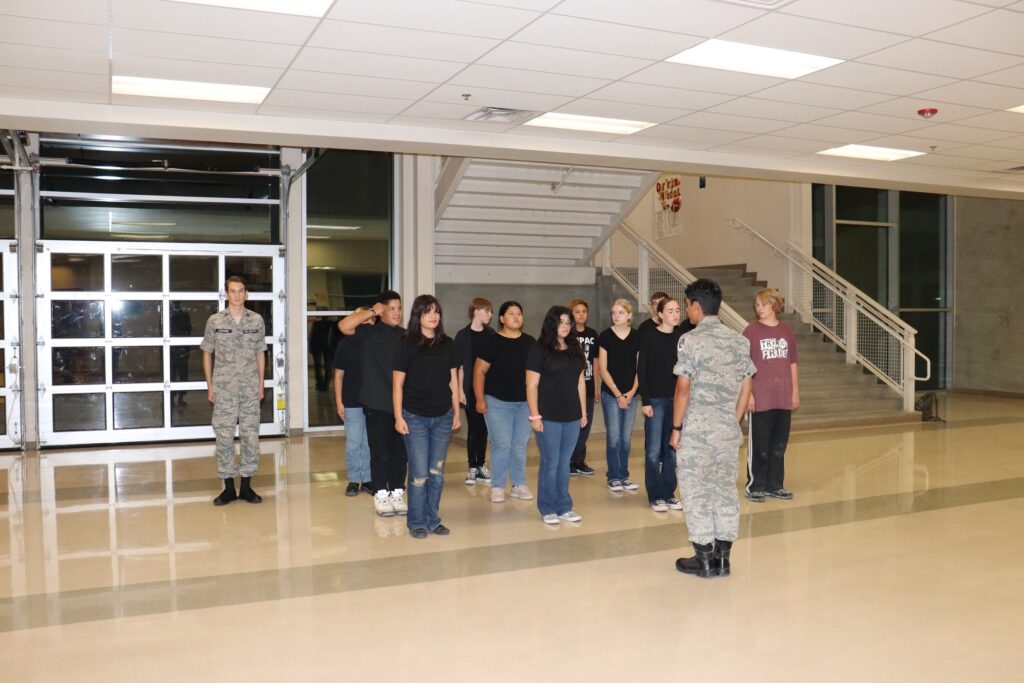
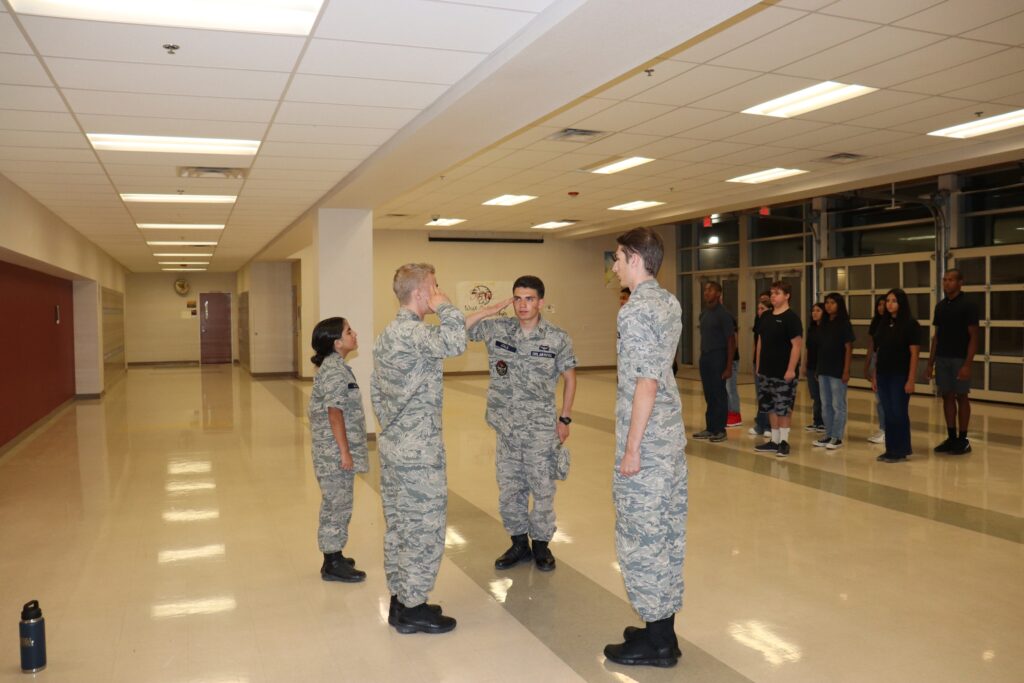
One of CAP’s hallmark activities is the Encampment, a one-week program held at the historic Wendover Air Force Base. The event mimics elements of a military boot camp, where cadets undergo intensive training in various aspects of aerospace, leadership, and teamwork. “Encampment is a turning point,” Carter said. “You see a cadet go from nervous and unsure to confident and ready to lead.” Participation in at least one Encampment is required for promotion to the officer level, providing a milestone that cadets must achieve as they progress through the program.
In Pahrump, CAP is on a mission to cultivate a strong, dedicated group of cadets who are prepared to take on leadership roles both in CAP and in the broader community. Captain Carter’s involvement, along with the help of local school officials and dedicated volunteers, is setting the stage for a promising future. For those curious to learn more or eager to join, Captain Carter encourages them to attend a meeting at the high school on Thursdays at 6:30 PM, where they can see firsthand what the CAP program is all about. Mrs. Amie Sitter-Jones is the liaison between the school and the program, as well as being a Senior Member with Civil Air Patrol. The meetings are held in her classroom (room 212) at the high school.
With the support of the schools, community and a clear commitment to excellence, Civil Air Patrol in Pahrump is building not only future leaders but also a legacy of service and education that will have a lasting impact on both the cadets and the community at large.


